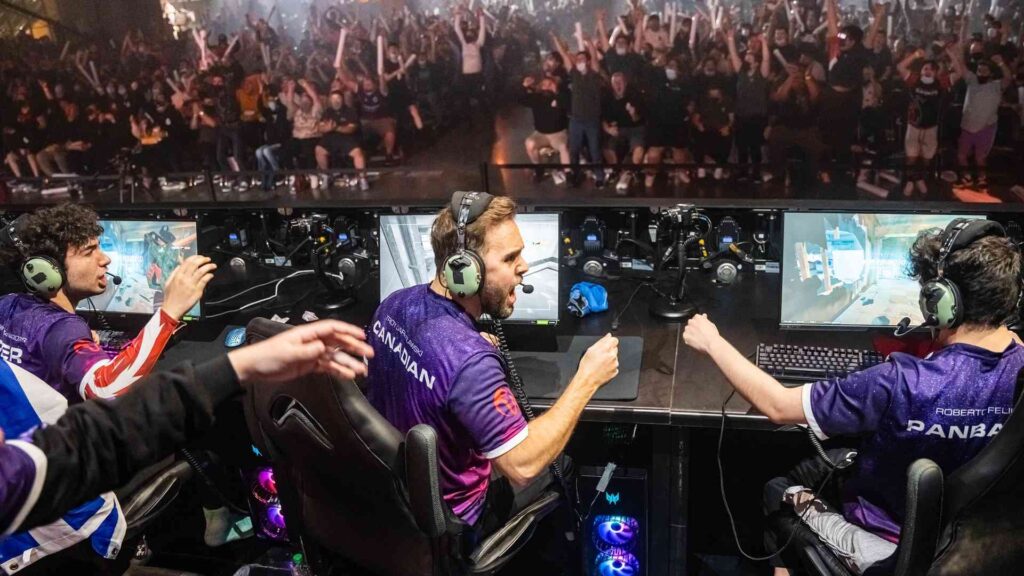The tournament, which takes place between April 24th and March 7th, already has confirmation of the four North American teams for the championship. Let’s get to know each of the four teams that will represent and seek to change this statistic for the region.
Contents
The search to reverse negative statistics
Before we dive in, the storyline to remember for this region is that it has the second-worst record of the 4 regions in Six Majors history. With only one title in seven tournaments, the region is behind LATAM (two titles) and EU (four titles), and it is also the region with the fewest finalists compared to EU and LATAM, with only three finalists, namely: Evil Geniuses РParis 18, Astralis РCharlotte 22, DarkZero (champions) РCharlotte 22. Second place would be LATAM with five finalists (Team oNe РMexico 21, Ninjas in Pyjamas РSweden 21, FaZe РSweden 21 and Berlin 22, Team Liquid РJ̦nk̦ping 22), and in first place, EU, with six finalists (G2 РParis 18 and Raleigh 19, Team Empire РRaleigh 19 and Mexico 21, Rogue РBerlin 22, Team BDS РJ̦nk̦ping). To reverse this delicate situation of the region, only one title is needed to equal LATAM in championships for the region, and in the case of a North American final, also becomes the second with the most finalists.
M80
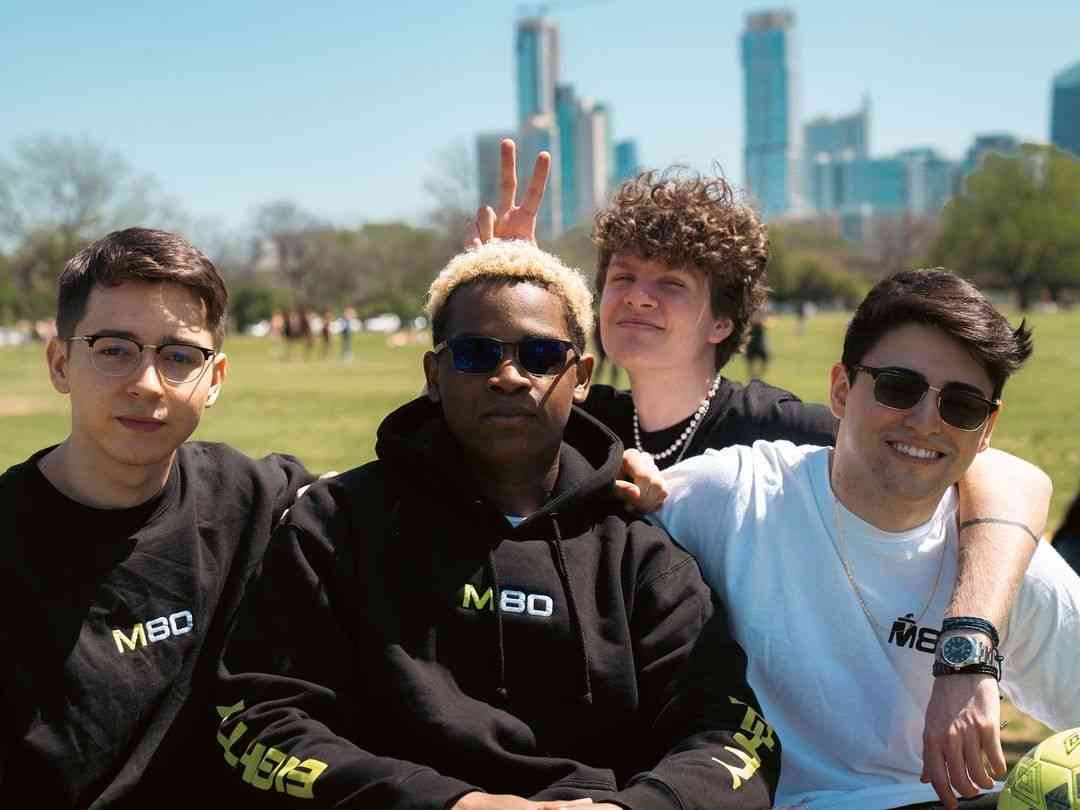 (Credit Instagram/M80gg)
(Credit Instagram/M80gg)The most consistent team in the North American region in 2022, reaching the Top 8 of the Six Major in Charlotte, and the Top 4 in Berlin, although at the time they were playing for the organization XSET. They missed out on the Six Major Jönköping, but with their spot practically secured for the Six Invitational, the team took a break, changed organizations, and once again delivered an impressive performance in the biggest international competition of Rainbow Six: Siege, finishing in the Top 8 (eliminated by the champions, G2).
In the current season, the team took some time to get going, struggling in best-of-one matches, even qualifying for the playoffs with a negative record (3 wins and 4 losses). But in best-of-three matches, the team regained confidence and showed the performance expected from them since the beginning of the season, defeating Soniqs, convincingly winning against Spacestation, and in a close match against DarkZero, securing the region’s title.
Team’s Strengths
Over the last 6 months, the team has shown that they are capable of playing a variety of maps, such as Theme Park, Chalet, Clubhouse, and Border, and despite a negative win rate on the Oregon map, it was the most played map by the team during that period (along with Theme Park and Border).
Looking at each position, we can see a well-balanced team with great players in their respective roles and a lot of individual skill from Iconic and Spoit.
Team’s Weaknesses
The team’s defense is not solid. With a 28% rate of opponents successfully planting the bomb during their defenses, this could be a potential problem in the phase 2 matches of the Six Major.
Best-of-one Matches. With a performance in the group stage that is completely different from their performance in the playoffs, we noticed that the team struggles mentally in quick matches.
Line-up
- Lucas ‘DiasLucas’ Dias
- Arthur ‘GMZ’ Oliveira
- Leonardo ‘Kyno’ Figueiredo
- David ‘iconic’ Ifidon
- William ‘Spoit’ Löfstedt
One to watch: Spoit – 0.86 Kill per Round (1st on team) / 35% Opening kills per round (1st on team) / 59% Opening kills wins (2nd on team)
DarkZero
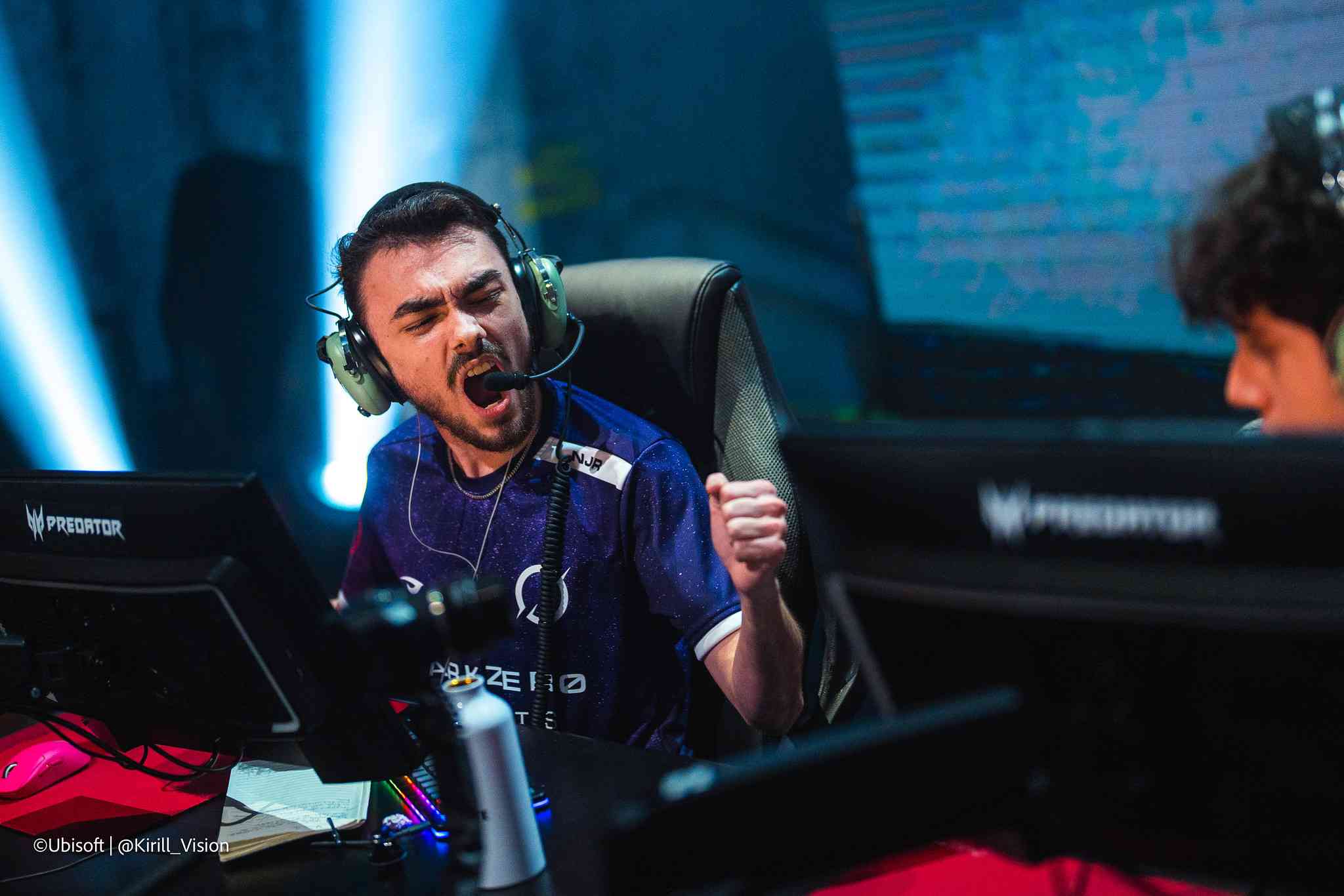 The player to watch for DarkZero: njr (Credit: Ubisoft/Kirill_Vision)
The player to watch for DarkZero: njr (Credit: Ubisoft/Kirill_Vision)The last North American team to win an international trophy, and at home no less (Charlotte), arrives to compete in their first Six Major after their last title. Far from tournaments, the team went through two changes before arriving at the active lineup, and today also has the Six Invitational Champion, “Achieved”, adding a lot of experience alongside “Canadian” for the young team’s lineup.
The team’s qualification for the playoffs was very convincing, finishing in first place, including a historic 7-0 victory against Spacestation. In the playoffs, the team was one Best of 3 away from the Six Major and also from the second phase of the competition, and for that, they only needed to defeat beastcoast, the underdog of the competition (which even appears in the other stories ahead), and after a very difficult game, the team won 2-1 and secured their return to the Six Major.
Team Strengths
The team has a good plant rate per attack (28%).
The team has two excellent maps in the map pool, Theme Park (6-2) and Kafe (5-0).
Team Weaknesses
The team does not have players with clutch characteristics according to statistics from the last 6 months, with a rate of 0.5 clutches per played map.
Despite only having one fixed ban map (Villa – 18 bans), the team does not have dominant performances on other maps (besides Theme Park and Kafe), which can create difficulties in big games.
Line-up
- Nick ‘njr’ Rapier
- Roberto ‘Panbazou’ Feliciano
- Troy ‘Canadian’ Jaroslawski
- Gaven ‘Gaveni’ Black
- Matthew ‘Achieved’ Solomon
One to watch: njr – 0.87 Kill per Round (1st on team) / 59% Opening kills wins (1st on team)
Spacestation
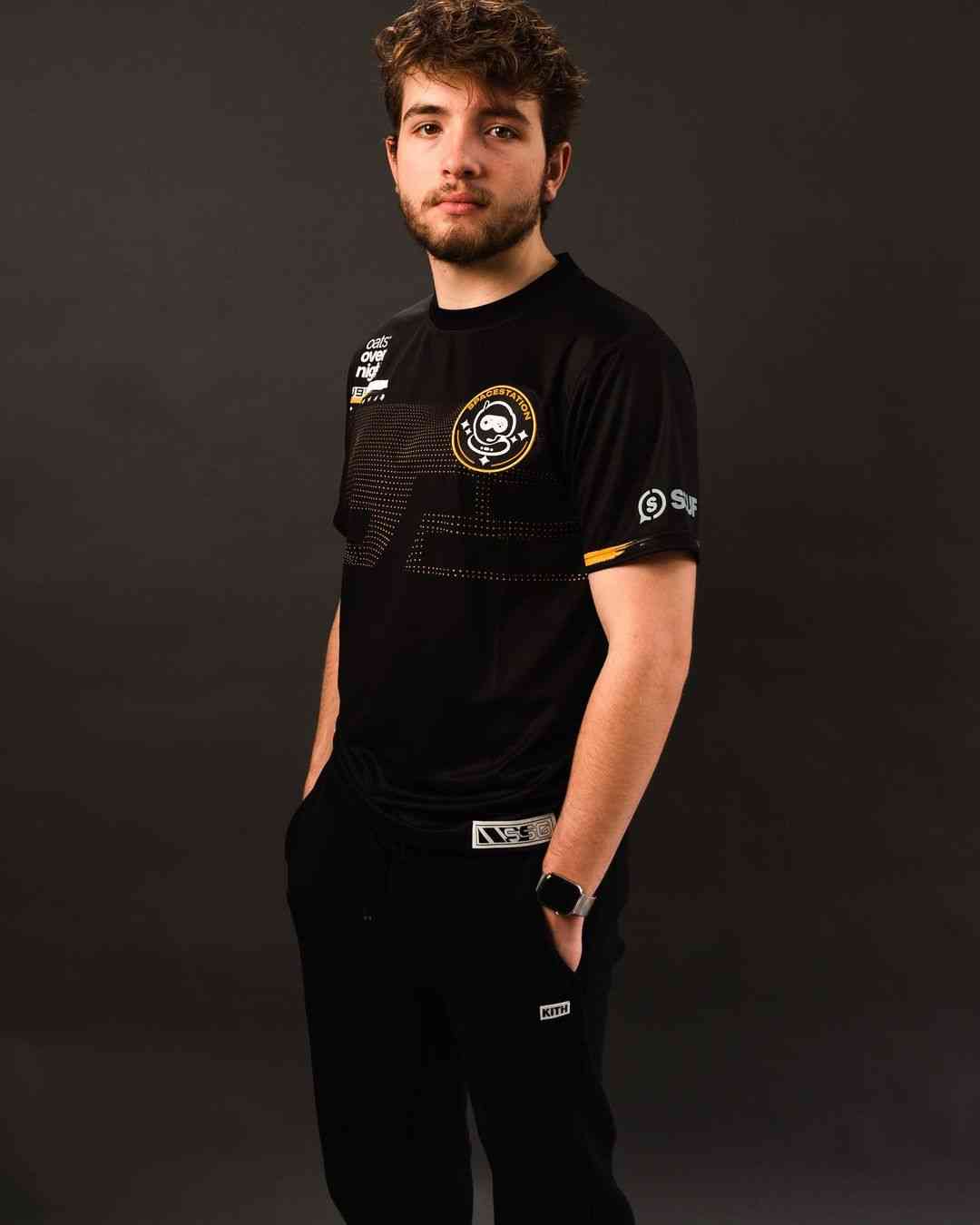 The player to watch for Spacestation: J90
The player to watch for Spacestation: J90One of the four North American teams to win international tournaments (Six Invitational 2020), the team arrives at its second consecutive international tournament and seeking its first Six Major in its history. After the Six Invitational 2023, the team had changes in its lineup, taking a base from Astralis and also the player “Merc,” a highlight of the TSM that won the Six Invitational 2022.
Like DarkZero, the team had a good group stage, despite the 7-0 against them, but the next day, the burden fell to Oxygen, who suffered the 7-0. Tied in points with DZ, Spacestation takes second place by round difference, but in playoffs, it suffers an unexpected defeat, for the way it was, against M80, and thus goes to the game for a spot in Phase 1 of Six Major against Beastcoast, and in a tight game, SSG secures the 2-0 victory and also its spot in the international tournament.
Team Strengths
With the hiring of the Astralis coaching staff, the team has a lineup with fewer flaws, despite not having grand performances. With that, the team has a very low rate of plants suffered per defense (19%) and also a good performance in terms of clutches suffered per map (0.69), making it a team that punishes mistakes a lot and leaves few points for the opponent.
Team Weaknesses
In addition to the Bank map (7-4), the team does not have another map as strong and dominant for big duels in Six Major.
Line-up
- Alec ‘Fultz’ Fultz
- Matthew ‘Hotancold’ Stevens
- Roman ‘Forrest’ Breaux
- Jack ‘J9O’ Burkard
- Bryan ‘Merc’ Wrzek
One to watch: J9O – 0.85 Kill per Round (1st on team) / 40% SRV (1st on team)
Soniqs
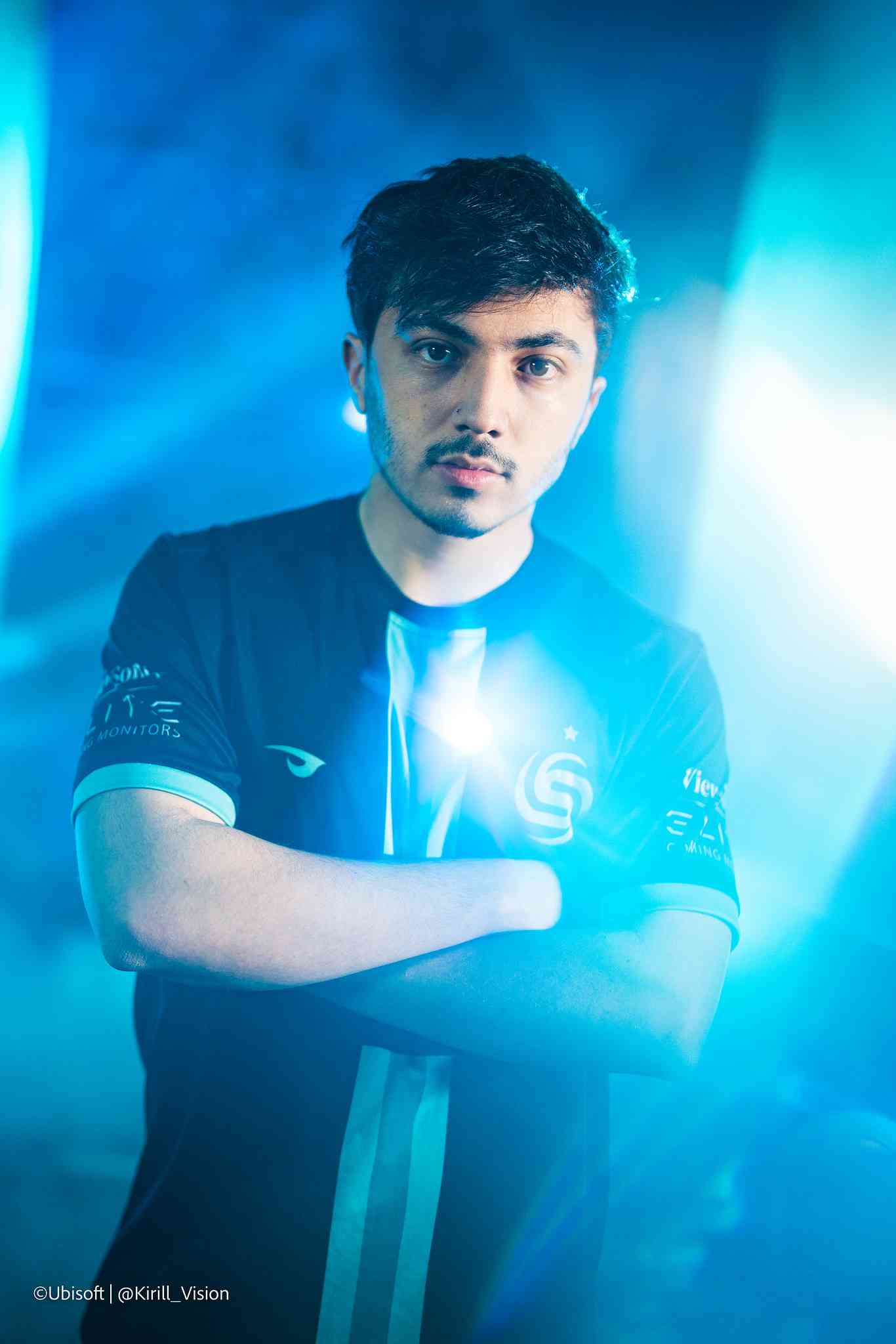 (Credit: Ubisoft/Kirill_Vision)
(Credit: Ubisoft/Kirill_Vision)The team arrives to compete in its third consecutive Six Major and fourth consecutive international tournament, despite changes in the lineup. After the arrival of CTZN, the team became more aggressive and with the potential to have even more individual quality, generating high expectations but not yet been met.
The team placed well in the group stage (third place), but after a close match against M80, the dream of direct qualification for the Six Major was over. In the Last Chance, the team had to eliminate Arial Arise, Oxygen, and in the grand final, beat Beastcoast, who lost the third match for the Six Major qualifications.
Team’s Strengths
The team has a high rate of plants per attack (30%).
Due to having a very skilled individual team, Soniqs has a very good rate of kills per round (3.6).
Team’s Weaknesses
In addition to Bank (21 bans), the team does not have fixed bans, playing a little bit of everything, but without much dominance in the last 6 months. The best advantage is on the Clubhouse map, with 7 wins and 5 losses.
Line-up
- Pablo ‘Gryxr’ Rebeil
- Richie ‘Rexen’ Coronado
- Emilio ‘Geometrics’ Leynez
- Shaun ‘Gunnar’ Pottorff
- Ben ‘CTZN’ McMillan
One to watch: Gryxr – 36% SRV (1st on team) / 67% Opening kills wins (1st on team) / 10 Clutch (1st on team).
The BLAST Six Major Copenhagen starts on April 24th, on Ubisoft’s official channels on YouTube and Twitch.


